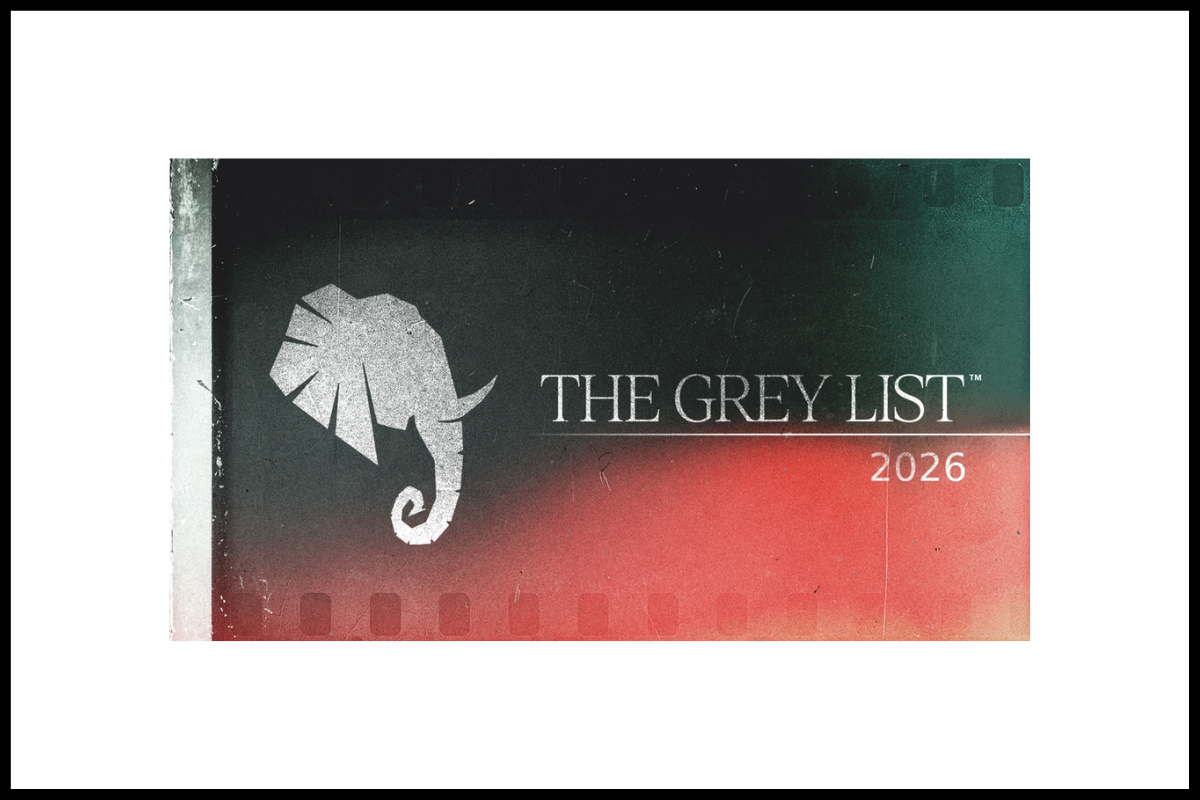Brandon Barker on Writing, Career & the Sale of ‘Nottingham & Hood’ to Disney
The same, but different. That’s what new writers are told to strive for when it comes to commercial concepts to raise their chances of a sale. It worked for screenwriter Brandon Barker.
Jeanne Veillette Bowerman is the Editor of Script Magazine and on Stephanie Palmer's list of “Top 10 Most Influential Screenwriting Bloggers.” Her narrative adaptation of the Pulitzer Prize-winning book,Slavery by Another Name, was selected for the Tracking Board's Top 25 Launch Pad Competition.
_______________________________
The same, but different. That’s what new writers are told to strive for when it comes to commercial concepts to raise their chances of a sale. It worked for screenwriter Brandon Barker.
Brandon took the classic Robin Hood and asked, “What if…?” The result was Nottingham & Hood – a Pirates of the Caribbean spin on the iconic Robin Hood tale and a sale of the franchise-potential script to Disney.
As I researched Brandon, I noticed he was always mentioned as a “first-time writer.” I’ve been at this long enough to know Nottingham & Hood most likely was not his first script. I had to talk with him about that “first time” label as well as his insights into writing and career.
Jeanne Veillette Bowerman: Congratulations, Brandon. You must be thrilled.
Brandon Barker: Thanks. It feels great.
JVB: I have to ask about the consistent mention of“first-time writer.” My guess is this isn’t your first scriptor attempt at a sale.
Brandon: I’ve been writing for 15 years out of college. I started writing specs. A lot of them were fairytale-based. Jack and the Giant Killer was my first screenplay, and that got me an agent and meetings but didn't wind up going anywhere. Looking back, that was in my early 20s. It wasn't written well enough.
JVB: It’s amazing to look back at a first script and see how far you’ve come. It’s rare to see someone break in quickly.
Brandon: I agree. I think it takes 5 to 10 years to begin to know what you’re doing in this field. It took me forever to figure out it’s all about character. Theme, plot, dialogue, and structure are huge, but it all comes down to character.
JVB: What has your 15-year journey been like?
Brandon: In my early 20s, I optioned a TV pilot about a sorcerer’s apprentice that was in development with Jonathan Frakes (Star Trek: The Next Generation). After that didn't happen. I taught 6th grade for a year. Teaching wasn't for me though, so for the past eight years, I’ve been making training videos for a software company, but I’ve been writing the whole time. I kept at it because I just love it. I could see improvement in each script.
JVB: What kept you in the game for those eight years, besides the love of it?
Brandon: I think you have to be a little delusional (laughs). Validation like contests and notes from managers keep you going. In my 20s the timing might not have been right, but I’m more confident in my writing now, plus I understand the industry.
JVB: I’ll pick your brain on the business side in a bit, but tell me how you got your current manager?
Brandon: I entered a promotion from Coverage Ink for their coverage service. They advertised Jake Wagner was reading the top scripts. Anytime a real professional is looking at your script as a result of a contest, you want to enter. Coverage Ink took the top five scripts to managers. Jake read mine and liked it. I met with him and he wanted to send it out.
JVB: When you heard SONY bought a competing idea, Hood, did you think your shot at selling Nottingham was done?
Brandon: I was developing the script with the producers at the time. But when the Hood announcement came out, Jake made a great decision to send it out as is, and there was interest right away from several studios before Disney made the offer.
JVB: And now you can quit your job and live happily ever after, right? (laughs)
Brandon: (laughs)
JVB: Seriously, I do want to address the day-job challenges since so many of us have bills to pay.
Brandon: Absolutely. It was important to have a job, but I decided not to try to find one in the industry. I had friends in film school who worked in the industry and ended up working so many hours they couldn't write. So I found a job that’s 40 hours per week and that is. I write two to three nights a week for three hours at the library so there are no distractions. I’ll go on on a Saturday as well. My wife, Carrie, is also a writer and she’s a great help at coming up with ideas. Talking aloud about ideas and details is very helpful.
JVB: What does the franchise aspect mean to you personally? And did you always see it as a franchise?
I think that was in the back of my mind. First I wanted to do Butch Cassidy and the Sundance Kid in the middle ages. Then I thought of Robin Hood and saw Midnight Run and used that as inspiration. I thought I might have them die at the end, but thought if I let them live, there’s franchise potential. More than franchise, I think it’s important to write characters for actors. So I wrote Robin Hood as kind of an antihero Jack Sparrow type of character, and I think Disney liked that, and they liked the reorientation.
JVB: I imagine it must have been fun to reinvent Robin Hood. Beyond that experience, what do you love about screenwriting and what do you find most challenging?
Brandon: I love that it does take so much thought and so much skill and a long time to learn this process. There are all these elements that you have to bring together – character, plot, structure, theme, dialogue – it’s such a challenge. I love seeing improvement from script to script. The learning of it. The getting better at it.
JVB: And the challenge of writing is also all of that above! (laughs)
Brandon: (laughs). Yes!
JVB: So what is the real challenge for you? Rewriting?
Brandon: I’m not precious about anything. It’s almost like writing improv. If something doesn't work, start it again. I’d say the biggest challenge as a whole in the industry is just getting noticed. It can take years to get in the door. It’s all about hard work and perseverance. Luck, timing, and talent and all factors, but it’s more than that. You know that book Outliers? It says it takes ten thousand hours of hard work to succeed. That sort of changed the way I thought about success. I honestly don't know if I’ve spent ten thousand hours writing, but it fells like it (laughs).
JVB: How do you feel about successnow that you've had 15 years behind you?
Brandon: I love it. I have to write. That's the kind of passion you need to have.
I don't think there’s any such thing as overall success. Maybe a little series of successes. Baby steps. It’s about that next challenge.
JVB: That philosophy is probably what kept you in the game.
Brandon: Yeah, you have to stay hungry.
JVB: You mentioned the business side being a challenge to a lot of writers. When do you think that insight sunk in for you?
Brandon: When I started writing, I was like an artist with self-expressive, offbeat ideas that might have placed in a contest, but didn't get me anywhere. When you start thinking like an executive and an owner of a studio, you realize what would be at stake is millions of dollars. And when you start thinking like an executive is when you start selling. At the same time you cant be cynical. If you’re writing something just for the studio and your heart isn’t in it, it’ll show, and it won’t sell. You have to find what you truly love and hope it lines up with what the studio wants as well. You have to be aware of what you’re looking for and what’s selling. And be honest about what is a commercial idea. If you’re desperate and too calculating, that shows up on the page as well.
JVB: What advice would you have for non-repped writers?
Brandon: Try everything! If a contest has access to a manager or agent reading your work, I’m a big fan because that's how I broke in. Spend a little money investing in yourself to do that. The first time I got an agent was through a query letter, but now, they don't work as well. It’s about hard work, a great concept, and what’s on the page.
JVB: Now for the question I ask everyone. If you could go back in time and give your 18-year-old self advice, what would it be?
Brandon: Later in life, I was told the average age that a screenwriter breaks in is 38. That would have made me feel better if I had known that at the age of 18. It takes time, hard work and perseverance. I would say relax; it’s going to turn out alright. And to remember those little milestones count. You have to celebrate the steps. They’re all working towards something.
Barker is repped by Benderspink, UTA and attorney Jeff Frankel.
- More articles by Jeanne Veillette Bowerman
- USAF Dentist Eric Koenig Sells 'Matriarch' to Paramount
- Meet Jake Wagner of Benderspink
Get advice on your scripts, pitching, treatments, loglines and more with
ScriptXpert Services at The Writers Store
Jeanne Veillette Bowerman is a Senior Executive at Pipeline Media Group and Book Pipeline, Editor-in-Chief of Pipeline Artists, Director of Symposium—a year-round conference in the arts, co-host "Reckless Creatives" podcast, partner at Fringe Press, former Editor-in-Chief of Script magazine and a former Senior Editor at Writer's Digest. Recognized as one of the "Top 10 Most Influential Screenwriting Bloggers," her "Balls of Steel" column was selected as recommended reading by Universal Writers Program. A compilation of her articles is now available at The Writers Store—Balls of Steel: The Screenwriter's Mindset. She is also Co-Founder and moderator of X's weekly screenwriters’ chat, #Scriptchat, and wrote the narrative adaptation of the Pulitzer Prize-winning book, Slavery by Another Name, with its author, Douglas A. Blackmon, former senior national correspondent of The Wall Street Journal. More information can be found on her website. X: @jeannevb | IG/Threads: @jeannevb_ | BlueSky: @jeannevb.bsky.social







